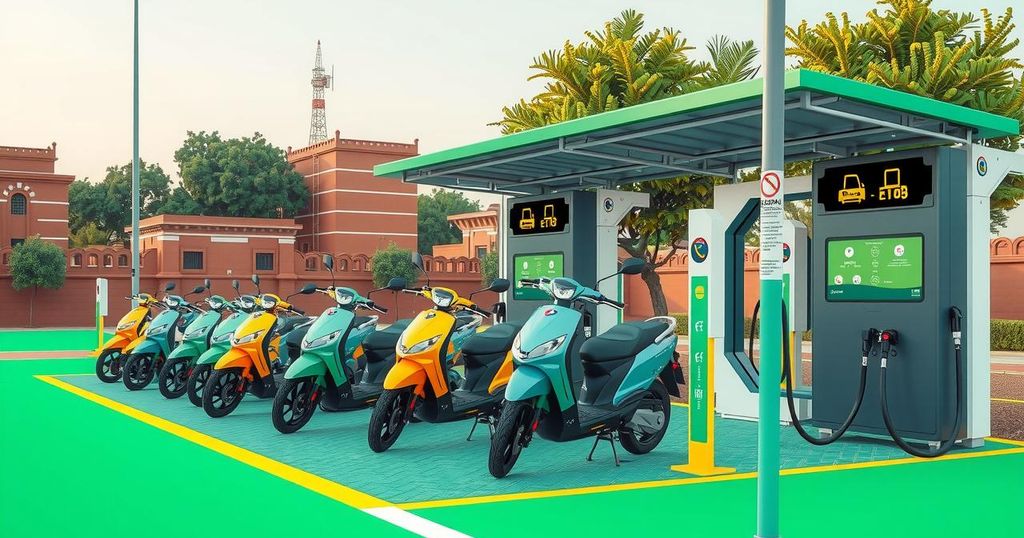Dodai Powers a Transport Revolution in Ethiopia with Electric Motorcycles

Dodai is revolutionizing urban mobility in Ethiopia with electric motorcycles designed to address energy access and economic challenges. Founded in 2022 by Yuma Sasaki, Dodai focuses on offering cost-effective, reliable two-wheelers powered by lithium-ion batteries. The company is also exploring battery swapping technology and has secured significant investments to support its growth and initiatives.
In Ethiopia, a transport revolution is underway, led by Dodai, a startup that is rapidly transforming urban mobility with electric motorcycles. Founded in 2022 by Japanese entrepreneur Yuma Sasaki, Dodai is addressing both energy access and economic challenges, making it the fastest-growing electric vehicle (EV) manufacturer in the country. With less than half of the population having reliable electricity, Dodai’s innovations are timely and impactful.
The motorcycles offered by Dodai are powered by lithium-ion batteries, providing substantial advantages over competitors that use cheaper lead-acid alternatives. Priced at approximately $1,800, Dodai’s e-bikes can travel up to 150 kilometers on a single charge, thus appealing to small businesses seeking cost efficiency. For instance, Sheger, a wedding store, reports significant savings in operational costs after switching to Dodai motorcycles, allowing for improved service delivery without fuel expenses.
Dodai’s ascent has been bolstered by forming strategic partnerships, such as with the Ethiopian Postal Service, along with removing bureaucratic obstacles that hinder motorcycle registration processes in the country. Collaborating with GPS provider Beatrix, Dodai facilitates quicker registrations, assisting gig workers in obtaining the necessary licenses. This strategy has effectively granted Dodai a leading position in the EV bike market in Ethiopia.
The company is also pioneering the concept of battery swapping, planning to establish 100 stations throughout Ethiopia by the end of 2025. This initiative aims to permit delivery riders to exchange depleted batteries for fully charged ones swiftly, thereby enhancing operational efficiency. Despite setbacks in securing a partnership with Ethiopia Investment Holdings, Sasaki insists the project will move forward independently, emphasizing the potential for reduced entry costs and competitive advantage in the sector.
Currently, Dodai has obtained $7 million from Japanese investors and aims to raise an additional $10 million for the battery-swapping initiative. Sasaki highlights the essentiality of a long-term investment perspective to navigate the complexities of the Ethiopian market, such as delayed customs. His optimistic outlook reflects his confidence in the dual model of fixed and swappable batteries to accommodate diverse infrastructure conditions.
In conclusion, Dodai is not just introducing electric motorcycles to Ethiopia but is advocating for a broader systemic change in transport and energy access. With local partnerships and innovative solutions, Dodai is setting a progressive example that may serve as a template for similar ventures across Africa. As Ethiopia prepares to electrify its transportation system, Dodai’s vision could play a pivotal role in shaping the future of mobility in the region.
Dodai’s innovative electric motorcycles offer a transformative solution to both energy and economic issues in Ethiopia. By prioritizing partnerships, simplifying bureaucracy, and launching a battery swapping initiative, the company positions itself for sustained growth in the EV sector. Ultimately, Dodai is more than an electric bike manufacturer; it is a catalyst for change in an emerging transport landscape.
Original Source: news.imotorbike.com




